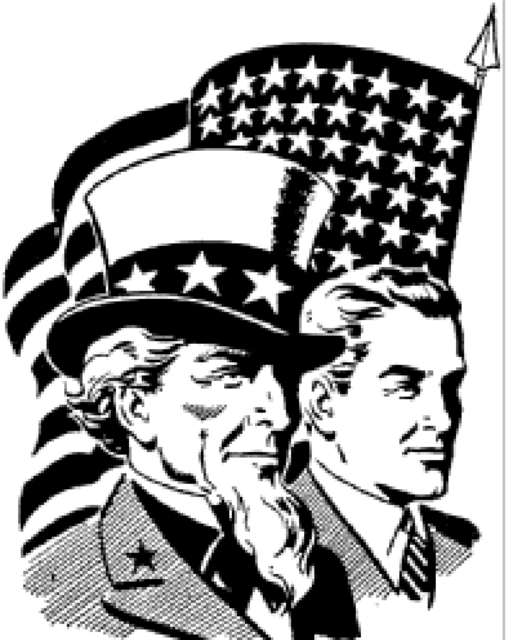Trump Moves to Ease the Firing of Federal Workers
New York Times, By Noam Scheiber
May 25, 2018
President Trump on Friday signed a series of executive orders making it easier to fire federal government workers and to curb the workplace role of unions that represent them.
Andrew Bremberg, the head of the White House Domestic Policy Council, said the president was “fulfilling his promise to promote more efficient government by reforming our Civil Service rules.”
But the push also reflects conservatives’ long-running suspicion of the federal bureaucracy, one reflected in pronouncements by the president’s advisers. Shortly after Mr. Trump took office, Stephen K. Bannon, then his chief strategist, called for “the deconstruction of the administrative state.”
Unions representing government workers were quick to denounce the actions, calling them an “assault on democracy,” in the words of the American Federation of Government Employees, the largest federal employee union, which represents 700,000 workers.
Experts on the Civil Service said the moves represented the next stage of an effort that Republican politicians and conservative activists had led in states like Wisconsin and Michigan throughout this decade.
“This is very clearly an administration trying to do all it can to weaken the role of public employee unions as part of a far broader strategy that in many ways has been bubbling up from the states to turn the Civil Service into at-will employment,” said Donald F. Kettl, a professor of public policy at the University of Texas at Austin, who is based in Washington. “For many people involved in this debate from administration, that is the ultimate goal.”
Newt Gingrich, the former House speaker who has been an informal adviser to the White House on Civil Service issues, said in an interview last year, when the administration was considering action, that a major impetus was the federal bureaucracy’s ideological opposition to the Trump agenda.
“When you learned that 97 percent of Justice Department donations went to Hillary Clinton, 99 percent of State Department donations went to Hillary, there are some reasons to believe a substantial number of people don’t want Trump to succeed,” Mr. Gingrich said. “Should the elected president of the United States have the ability to control the bureaucracy that actively opposed him?”
Mr. Trump signed three executive orders. The first makes it easier to fire and discipline federal employees, which a senior administration official, who declined to be named on a call with reporters, argued had become a much too lengthy and difficult process. The administration said it could take six months to a year to dismiss an employee for poor performance, followed by an average of eight months to work through appeals.
To streamline the process, the official said, the executive order will reduce the period in which poor performers must demonstrate improvement to 30 days, from as many as 120 days.
The second executive order directs federal agencies to renegotiate contracts with unions representing government employees to reduce waste. The administration official expressed hope that, for example, agencies could stop having to pay expenses of both sides when unions undertake appeals on behalf of fired workers.
Richard Loeb, a senior policy counsel for the American Federation of Government Employees, said appeals were typically handled by union lawyers not paid by the government.
The third order aims to cut down on what is known as “official time,” in which government workers who have roles in the union, like helping colleagues file grievances, are allowed to perform those roles during normal working hours for which they draw their usual salary. The order limits official time to 25 percent of their hours during the year.
Mr. Bremberg, the White House domestic policy official, said the moves would make good on the president’s call to “empower every cabinet secretary with the authority to reward good workers and remove those that undermine the public trust or fail the American people.”
But Mr. Kettl of the University of Texas said such moves were not a panacea for insuring efficient government.
“There is nothing to suggest that firing people is going to solve the basic underlying problem, which is a matter of trying to line up capacities to do the job you’re trying to do,” he said. “In particular, you need to dramatically improve the ability to hire the employees you need.”
Trump Signs Executive Orders Aimed at Loosening Clout of Federal Labor Unions
Gregory Korte, USA TODAY, May 25, 2018
WASHINGTON — President Trump wants federal agencies to fire low-performing workers, negotiate better union agreements and slash the time that federal employees can spend union activity and still be paid.
Those directives appear in a series of executive orders Trump signed Friday, the afternoon before the Memorial Day weekend.
Andrew Bremberg, the director of the White House Domestic Policy Council, said the orders fulfill a promise in Trump's State of the Union address to overhaul the federal workforce.
Then, Trump asked Congress to "empower every Cabinet secretary with the authority to reward good workers — and to remove federal employees who undermine the public trust or fail the American people."
But labor unions representing federal workers said the moves were part of a politically motivated assault on the merit system.
"It's basically an attempt to make federal employees at-will employees, so you cam make them political employees, so you can hire anyone who had a bumper sticker for you in the last election," said J. David Cox, president of the American Federation of Government Employees, the largest union representing federal employees.
"This would begin the process of dismantling the merit system that governs our civil service," said Tony Reardon of the National Treasury Employees Union. "It is worth remembering that many of these federal employees are on the job over this holiday weekend protecting our borders, ensuring our food supply is safe and welcoming visitors to our national parks."
The executive orders aim to:
► Make it easier agencies to fire low-performing workers by limiting the amount of time that workers can spend on probation, encourage firing instead of suspensions, and requiring agencies to share information about bad employees so they don't hop from one agency to another.
► Get tougher at the bargaining table when the government negotiates union contracts. The order centralizes negotiating strategy in the White House Office of Management and Budget, which will post copies of federal labor agreements online.
► Limit the amount of time that federal workers can spend on union business. The federal government spent almost $175 million to pay workers for this "official time" in 2016, according to the Office of Personnel Management. That includes time spent lobbying Congress and representing workers in disciplinary actions — practices Trump wants unions to pay for themselves.
Trump signs executive orders cracking down on federal unions representing about 2.1 million employees
By Bloomberg , May 25, 2018
President Donald Trump signed executive orders restricting the unions that represent many of the U.S. government's 2.1 million employees, the White House said Friday.
One of the three orders limits the amount of official time federal employees can spend on union duties to no more than 25%. It also requires the federal government to start charging union members rent for using space in federal buildings, stop paying employees for the cost of lobbying the federal government and more aggressively negotiate union contracts.
Trump's move to curtail the activities of federal unions follows a wave of laws signed by Republican governors over the last decade restricting public-sector collective bargaining and weakening government unions, moves that conservatives see as helpful in shrinking government and undermining political foes.
The American Federation of Government Employees, the nation's largest federal employee union, endorsed Democrat Hillary Clinton for president in December 2015.
"This is more than union busting — it's democracy busting," AFGE President J. David Cox said in a statement. "These executive orders are a direct assault on the legal rights and protections that Congress has specifically guaranteed to the 2 million public-sector employees across the country who work for the federal government."
Since entering office, Trump has made high-profile overtures to private-sector union leaders and members, but has shown less interest in winning over their public-sector counterparts. One notable exception is the union representing Immigration and Customs Enforcement staff.
Among President Trump's most consequential moves for the future of organized labor was his appointment of Supreme Court Justice Neil Gorsuch, who is expected to vote with the court's conservative majority next month to ban public-sector union fees, making the entire public sector "right-to-work."
Another of the executive orders Trump signed instructs the Office of Personnel Management to update regulations to shrink the length of performance improvement periods, during which a problem worker cannot be fired, to 30 days across all agencies. Such periods, which allow workers an opportunity to improve their performance and keep their jobs, currently last from 60 to 120 days, according to a senior administration official who briefed reporters ahead of the announcement.
"These executive orders will make it easier for agencies to remove poor performing employees, and ensure that taxpayer dollars are more efficiently used," White House Domestic Policy Council Director Andrew Bremberg told reporters on a conference call.
During his state of the union address earlier this year, Trump called on Congress to pass legislation that would give the executive branch more authority to quickly remove workers. No such legislation has been passed, and a senior administration official said that Trump signed the orders in part to achieve a similar aim.
a campaign for Congress to
support civil service
NFFE
National Federation of
Federal Employees
Chicago, IL
We Work for America
Everyday
Three Articles Below...

